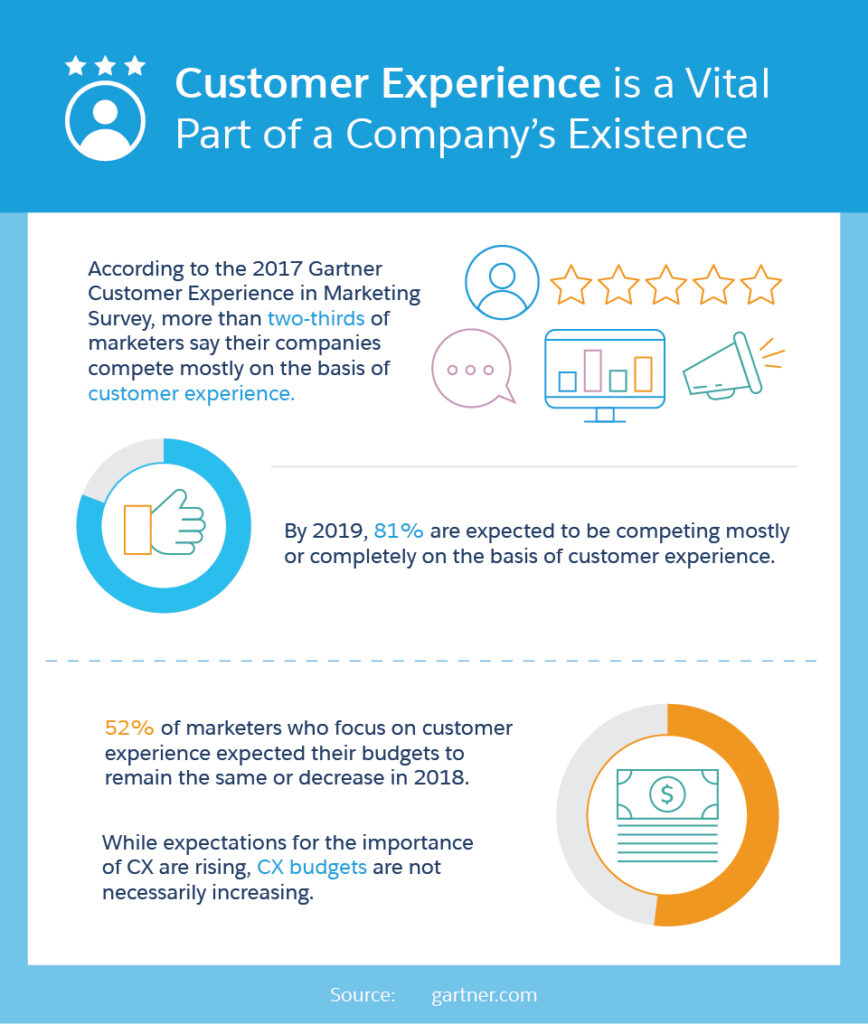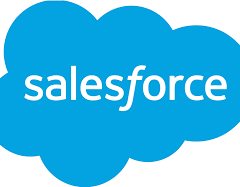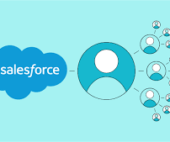The ultimate purpose of Salesforce is to provide businesses with a cloud-based Customer Relationship Management (CRM) platform that can effectively manage customer data, sales operations, and marketing campaigns. It caters to a broad spectrum of users, including sales teams, marketing professionals, customer support representatives, and business leaders.
What is a CRM?
A CRM platform helps you go deeper with all your metrics and data; you could also set up a dashboard that showcases your data visually. In addition to this, you can also have personalized outreach with automation. Another significant benefit is that a CRM platform can also improve customer service’s ability to help customers or a sales team’s outreach efforts.
What are the Components of Salesforce?
What are Sales Cloud and Service Cloud Differences? The main difference between Sales Cloud and Service Cloud is that Sales Cloud helps streamline sales efforts, while Service Cloud helps support agents providing excellent customer service, and resolve issues before they become a problem.
360-Degree Customer View: Integrating Service Cloud and Sales Cloud provides a holistic view of each customer, combining information on support interactions and sales history. This comprehensive customer profile empowers both service and sales teams to tailor their approach effectively.
Salesforce services allow businesses to use cloud technology to better connect with partners, customers, constituents, members, and potential customers. Using the Salesforce CRM, companies can track customer activity, market to customers, and many more services.
Salesforce Marketing Cloud is built to identify leads and guide them toward your product or service, while Salesforce Sales Cloud is built to close deals and bring in revenue. Marketing Cloud’s suite of tools assist with segmentation, automation, personalization, and more.
IoT Cloud: Salesforce IoT cloud is used when your company needs to handle the Internet of Things (IoT) data. This platform can take vast volumes of data generated by various IoT devices; following this, you get real-time responses.
Users can access Salesforce through a web browser, mobile app, or desktop application. Salesforce allows users to customize and create custom objects, fields, processes, and reports and integrate them with other software products. Salesforce also provides marketing automation and Artificial Intelligence (AI) capabilities.
Salesforce offers additional tools like Revenue Cloud for CPQ, Data Cloud, and industry specific solutions for public service, government, nonprofits, and more. The App Cloud can be used to develop custom apps that will run on the platform.
Key Functions of Salesforce:
- Customer Relationship Management (CRM): Salesforce serves as a centralized hub for managing customer accounts, sales leads, activities, and support cases.
- Access and Customization: Users can access Salesforce through web browsers, mobile apps, or desktop applications, with the ability to customize the platform to suit specific business needs.
- Marketing Automation and AI Capabilities: Salesforce offers marketing automation tools and Artificial Intelligence (AI) capabilities to optimize marketing processes and gain valuable insights.

Salesforce Architecture Overview:
- Multi-tenant Architecture: Utilizing a multi-tenant architecture, Salesforce stores data in a single database schema, enabling cost-effective solutions and shared services across multiple clients.
- Metadata-Driven Development: Salesforce’s metadata-driven development model streamlines application development and customization processes.
- API Support: Robust API support facilitates seamless integration and customization of applications, including mobile solutions via the Salesforce1 Mobile App.
Salesforce Infrastructure:
The Salesforce Infrastructure comprises the backend systems powering the cloud computing platform, including the application server, database server, development environment, and integration platform. Designed for scalability and fault tolerance, it undergoes continuous updates managed by Salesforce, relieving the burden from the client’s IT team.
Salesforce Applications:
Salesforce offers various applications tailored to specific business needs, including customer service, customizable data handling, flexible reporting and analysis, and customer data insights.
Why Do Businesses Utilize a CRM:
Businesses leverage Salesforce to streamline sales operations, improve efficiency, and drive lead generation. It simplifies complex sales processes, provides actionable data insights, and offers a comprehensive CRM solution with extensive customization options.

Who is Salesforce?
Since its inception in 1999, Salesforce has revolutionized the CRM market by introducing cloud computing, reducing operating costs, and enhancing data accessibility. With over 150,000 customers globally and a 20% market share, Salesforce dominates the CRM landscape. Continuous growth and expansion, marked by strategic acquisitions like ClickSoftware, Mulesoft, Slack, and Tableau, further solidify its position as a leader in CRM solutions.
Salesforce is a cloud-based software company that provides businesses with tools that help them find more prospects, close more deals, and provide a higher level of service to their customers.
- SAAS (Software As A Service): Here, you can directly obtain the built-in software and make use of it.
- PAAS (Platform As A Service): PAAS offers you the framework and platform to build your websites and apps.
- IAAS (Infrastructure As A Service): IAAS plays a vital role in Salesforce development, although not very widely used.
Salesforce is a valuable tool for businesses across diverse industries, enabling them to effectively manage customer relationships, streamline processes, create time-saving automations, and drive growth through data-driven insights and customizable solutions.
Key Benefits
Enhanced Time Management Efficient time management is a standout advantage of utilizing Salesforce, offering a pivotal means for businesses to flourish and expand. By amalgamating comprehensive customer data and practical planning tools into a single platform, Salesforce eliminates the need for time-consuming searches through logs and files for vital information.
Streamlined Sales Process The abundance of pertinent customer data in SFDC empowers businesses to prioritize tasks effectively, facilitating the seamless progression of leads through the sales funnel into loyal customers. Furthermore, the platform’s calendar feature simplifies project planning, meeting scheduling, and call management, ensuring teams stay organized and informed.
Enhanced Accessibility With the platform operating as cloud software, accessibility is unrestricted, enabling users to connect from any location with internet access, be it via desktop, laptop, or smartphone. This flexibility is invaluable for businesses with frequent travelers, ensuring crucial CRM tools are always within reach while maintaining data security through cloud-based storage.
Increased Revenue Utilizing Salesforce mitigates the cost implications of manual data sorting and administrative tasks, freeing up valuable time that can be redirected towards revenue-generating activities. By automating administrative processes, businesses can focus on building customer relationships, expanding their client base, and ultimately boosting profits.
Heightened Customer Satisfaction A well-utilized CRM fosters greater customer satisfaction by facilitating personalized interactions and efficient management of client information. With streamlined administrative tasks, businesses can dedicate more time to understanding and fulfilling customer needs, cultivating stronger relationships and enhancing brand loyalty.
Simplified Account Planning Salesforce simplifies account planning by providing easy access to comprehensive customer data, enabling businesses to tailor products and services to individual client needs effectively. By efficiently organizing client information and tracking trends, businesses can optimize account strategies for enhanced customer satisfaction and retention.
Trusted Reporting The CRM offers reliable reporting capabilities, allowing businesses to make informed decisions based on accurate data analysis. By organizing and analyzing vast amounts of data from various sources, Salesforce ensures data accuracy and empowers businesses to derive actionable insights for strategic decision-making.
Improved Team Collaboration SFDC fosters improved team collaboration through features like “Chatter,” facilitating seamless communication and information sharing among team members. By connecting individuals and groups, Salesforce enhances team cohesion, efficiency, and ultimately contributes to meeting deadlines and achieving sales targets.
Content updated October 2023.













